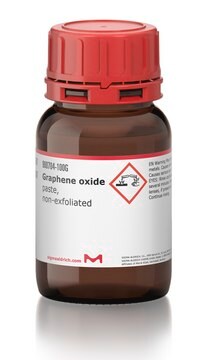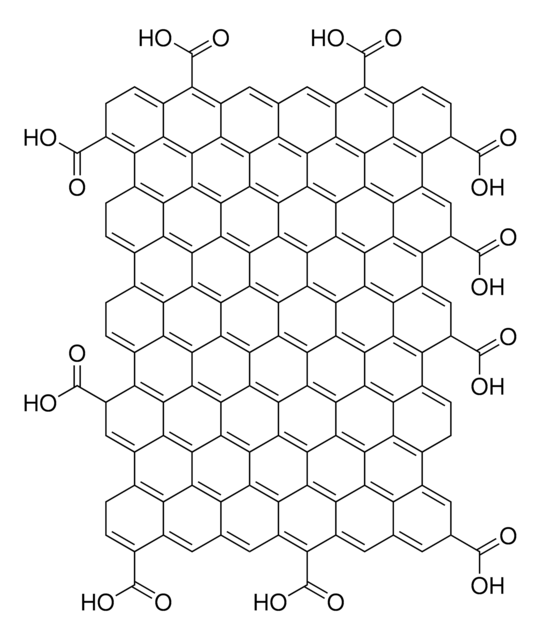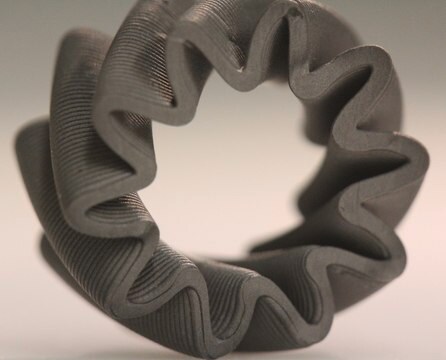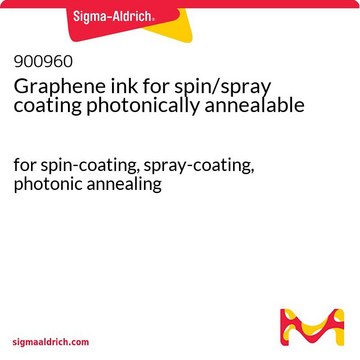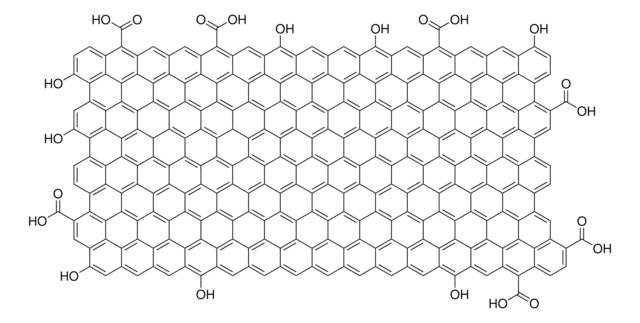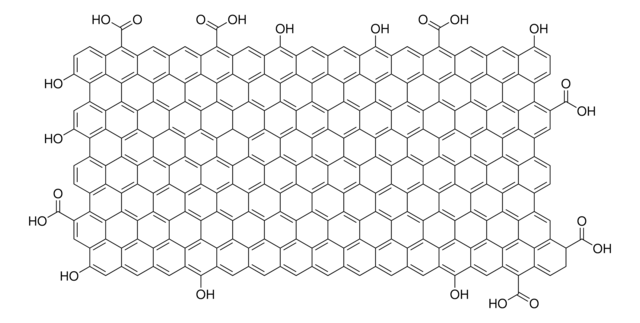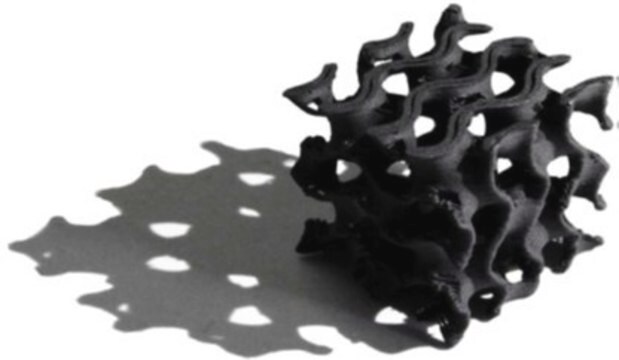916579
3D Printable Graphene Oxide Ink
avg. no. of layers, 1
Synonyme(s) :
3D Printing graphene oxide ink, Direct extrusion printable graphene oxide ink
About This Item
Produits recommandés
Description
Graphene oxide sheet size: 300-800 nm lateral size
Number of layer for graphene oxide: single layer
Niveau de qualité
Forme
liquid
Caractéristiques
avg. no. of layers 1
Caractéristiques du produit alternatif plus écologique
Design for Energy Efficiency
Learn more about the Principles of Green Chemistry.
sustainability
Greener Alternative Product
Concentration
40 mg/mL (Graphene oxide aquous ink)
Viscosité
100-210 Pa.s (25 °C at shear rate of 10 s-1)
Autre catégorie plus écologique
, Enabling
Température de stockage
2-8°C
Description générale
Application
Notes préparatoires
Bring the ink to room temeprature, best to mix the ink in a planetary mixer before usage.
Printing:
Recommended 3D printing nozzle diameter size is 400 micron.
Post printing:
After 3D printing, this ink can be directly freeze-dried in liquid nitrogen and vacuum to obtain free- standing graphene oxide aerogel.
This ink can also be processed by adding gelling agents to enable a covalent bond established between the graphene oxide sheets. Gelation agents such as ammonium carbonate, ammonium hydroxide, resorcinol formaldehyde have all been reported to be sufficient. After gelation, the wet GO gels printed parts are washed in acetone to remove water from the pores. Supercritical CO2 can then be used to dry the GO gels.
Curing:
Parts that are printed with gelling agent can be cured in sealed glass vials at 85 °C.
The dried aerogels are generally reduced to graphene aerogels by thermal treatment at 1050 °C under inert atmosphere. Other chemical reduction methods include hydrazine reduction, dried aerogels can also be reduced using hydroiodic acid, followed by washing in ethanol, water and then freeze drying.
Stockage et stabilité
Code de la classe de stockage
10 - Combustible liquids
Classe de danger pour l'eau (WGK)
WGK 3
Faites votre choix parmi les versions les plus récentes :
Certificats d'analyse (COA)
Vous ne trouvez pas la bonne version ?
Si vous avez besoin d'une version particulière, vous pouvez rechercher un certificat spécifique par le numéro de lot.
Déjà en possession de ce produit ?
Retrouvez la documentation relative aux produits que vous avez récemment achetés dans la Bibliothèque de documents.
Articles
Partnering additive manufacturing (3D printing) with functional nanomaterial-based inks has the potential to push the properties and performance of advanced materials beyond previous capabilities. This is particularly true in energy and environmental applications.
Notre équipe de scientifiques dispose d'une expérience dans tous les secteurs de la recherche, notamment en sciences de la vie, science des matériaux, synthèse chimique, chromatographie, analyse et dans de nombreux autres domaines..
Contacter notre Service technique